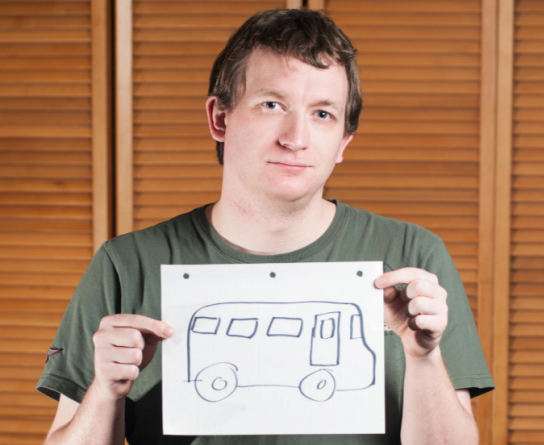By Nick Ubels (The Cascade) – Email
Print Edition: February 27, 2013

Public transit in the Fraser Valley is pretty lacklustre.
We’re put to shame by other cities’ vast and frequently-running networks of buses, trams and subways. One of the biggest reasons for this is something the average person who isn’t a city planner can’t help: urban and suburban sprawl. We take up a lot of space for not a lot of people or things.
I live in Surrey so I drive to school. There’s no realistic public transportation option that will reliably get me on campus and back in less than two or three hours, especially if I’m taking any night classes or it’s another late production night at The Cascade. It’s an expensive and time-consuming practice, but short of a private shuttle or inexpensive light rail system, it’s the only option that will get me here when I need to be.
UFV’s largest campuses are situated in two cities separated by 25 minutes of highway and no regular transit between the two. Despite years of advocacy and campaigning, there’s no solid evidence of a public bus route filling this need anytime soon.
That’s where UFV SUS has stepped up.
The board of directors has put forward a plan for a regular private shuttle between the Chilliwack and Abbotsford campus. Between March 1 and March 8, UFV students will have the chance to decide by online vote whether they would like to implement such a service starting in the fall semester.
The details have been discussed in these pages before, but here’s a quick recap:
The shuttle will run between Chilliwack and Abbotsford 10-12 times per day from 6:30 a.m. to 10:00 p.m., meaning that late night classes will be covered. It will be open to UFV students, staff and faculty. Finally, a “yes” vote will trigger a year-long trial; students will be asked to vote on whether they would like to see the program continue on a more permanent basis around the same time next year.
While 40 per cent of the program costs will be contributed by the university, students would be required to pay a meagre $6.75 per semester. For the cost of a single Sodexo meal, regular, easy-to-access transportation between UFV’s major campuses is possible.
Even though I live in Surrey, I could still benefit from such a measure. I could use the bus service to get to classes in Chilliwack without having to spend an extra 45 minutes’ worth of gas each time I do so. It opens up a much wider range of possible course selections for students across many disciplines.
An intra-UFV shuttle is a surefire way to increase the sense of community between the two campuses by opening just these sort of opportunities to students based out of any of the municipalities UFV serves. Aside from classes, social events and varsity games that are largely held on the Abbotsford campus will be accessible for students living in Chilliwack.
There’s also the added benefit of a lightened load on UFV’s parking lots. The more students taking transit, the less cars clogging up those coveted spots.
Ultimately, the hope is that this measure will be temporary, that it will demonstrate to Abbotsford and Chilliwack that there is a demand for a regular route between UFV campuses. If the two cities can see that the service is viable without having to stick their necks out to try it, they just might do it. After all, it’s taking credit for a good idea without having to take any of the risk.
Because this is a short-term contract, it will be fairly convenient for the SUS to cancel the service and earmarked fee if a public option were to become available.
It’s easy to dismiss any fee increase pitched by the SUS as another attempt to drain students’ already cash-strapped pockets. And sometimes, when the terms are vague, when the fee is arbitrary or unnecessary, that can certainly be the case. But the private shuttle is an ambitious and soundly-planned initiative that deserves the support of the students.
The SUS directors saw a river. And instead of drowning in the current, they thought of building a bridge. With the help of the students, they can do just that. It’s an opportunity for us to take charge of solutions to our own problems. Why not carry on in spite of municipal reluctance?
And even if it collapses, the students have the life preserver of a trial period to save them from years of lost fees.
